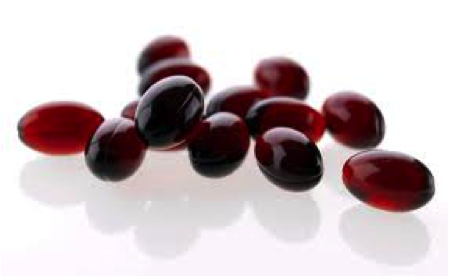Is Olive Oil Bad For Your Brain?
Table Of Contents
Brain Health
Alzheimers Disease
Benefits Of Olive Oil
 It’s the SIXTH leading cause of death in the US…
It’s the SIXTH leading cause of death in the US…
More than 5.4 million people are currently living with this dreadful disease…
And that means over 15 million caregivers have given OVER 17 billion in FREE care…
This year, this disease is estimated to cost the nation over 200 billion dollars and rise to over 1 TRILLION in healthcare costs by the year 2050…
ONE in THREE seniors will die with this disease or some other form of dementia…
The disease is Alzheimer’s.
Although there is currently no cure, there are new breakthroughs every day in the fight against this disease.
One of those breakthroughs happen to be the omega-3 fatty acids, DHA and EPA.
And so far, omega-3 fatty acids, diet, and exercise may all play a role in preventing this disease.
But now, a new player has entered the ring…
Olive Oil and Alzheimer’s Disease
Do you know someone, usually an older adult, whose mood changes from day to day – or even from moment to moment?
Do they find simple tasks difficult, like playing Bridge or balancing a checkbook?
Do they often get lost going to the store or to their favorite eatery?
Have they lose interest in things that they used to love?
Do they commonly misplace items and have no idea where they put them?
If you answered "yes" to any of these questions, then chances are they may be experiencing some form of cognitive impairment, dementia, or even the early stages of Alzheimer’s disease.
Now, research has shown a lot of different nutrients may slow the degeneration of brain cells.
Some things, such as omega-3 fatty acids, cutting back on certain fats (trans-fats), exercise, and berries, have all been highlighted in studies as ways to slow the progression.
But today, olive oil--the #1 oil used for cooking--has entered the ring - due to a specific compound found in it – as a way to reduce the risk for Alzheimer’s.
The compound in question: Oleocanthal.
A new study has shown that high olive oil intake may be linked to a reduction in risk for Alzheimer’s, but the reason for this reduction is unclear.
Until now!
 The new study shows that oleocanthal may have the ability to clear beta amyloid proteins from the brain, therefore reducing the risk.
The new study shows that oleocanthal may have the ability to clear beta amyloid proteins from the brain, therefore reducing the risk.
Beta-amyloids are proteins, which are present in high concentrations in the brains of people with Alzheimer’s, and may be the reason for the eventual neurodegenerative processes of destroying brain cells.
Here’s what they found:
Oleocanthal, when administered to mice brain cells, activated a specific pathway (in the brain cells) that increased the expression of major transport proteins in the brain.
This resulted in an increased clearance of beta amyloid proteins from brain cells, and an increase brain efflux index.
Also, they showed that oleocanthal may have the power to break down the beta amyloid proteins by increasing the activity of beta amyloid enzymes.
What they concluded:
“These findings provide experimental support that potential reduced risk of AD associated with extra-virgin olive oil could be mediated by enhancement of AB clearance from the brain.”
The Many Benefits of Olive Oil
Olive oil, research suggests, has many potential benefits to health.
From intestinal health, to fat loss, and even to reducing inflammation, should make it the preferred choice when it comes to promoting good health.
And to make it an even better oil of choice, olive oil, research suggests, could even reduce the risk for Alzheimer’s disease.
If you’re looking for a better oil to use for cooking, salads, or as a topper, then look no further than the health-promoting benefits of olive oil.

References:
Abuznait AH, Qosa H, Busnena BA, El Sayed KA, Kaddoumi A. Olive-Oil-Derived Oleocanthal Enhance B-Amyloid Clearance as a Potential Neuroprotective Mechanize against Alzheimer’s Disease: In Vitro and in Vivo Studies. ACS Chem. Neurosci. Article ASAP. 2013. doi: 10.1021/cn400024q.
About Jayson Hunter & Jaylab Pro

Jaylab Pro was founded by Registered Dietitian Jayson Hunter. Jayson has been recognized as one of America's foremost weight loss experts by America's Premier Experts™. He has also been featured in USA Today for this accomplishment. Jayson is also a best-selling author having co-authored multiple books in health & fitness and business growth. Jayson and the Jaylab Pro team are proud to create content that helps improve the lives of millions of people around the world. We hope you enjoy it just as much as others have.
 If you order a JayLabPro SmartShip product or any Combo Package, we will automatically ship you a new supply of the product or products you have ordered every month, starting 30 days after your initial order is shipped, and continuing until you cancel. The credit card you are using today will be billed the lowest available price for those product or products when your order is shipped, but shipping will be FREE. You may log into your customer account or call our customer service department toll-free at 1-888-9GETPRO (1-888-943-8776) between the hours of 8am – 9pm EST Mon-Fri to cancel future shipments, customize the timing of your shipments, or change the credit card used for billing.
If you order a JayLabPro SmartShip product or any Combo Package, we will automatically ship you a new supply of the product or products you have ordered every month, starting 30 days after your initial order is shipped, and continuing until you cancel. The credit card you are using today will be billed the lowest available price for those product or products when your order is shipped, but shipping will be FREE. You may log into your customer account or call our customer service department toll-free at 1-888-9GETPRO (1-888-943-8776) between the hours of 8am – 9pm EST Mon-Fri to cancel future shipments, customize the timing of your shipments, or change the credit card used for billing.










